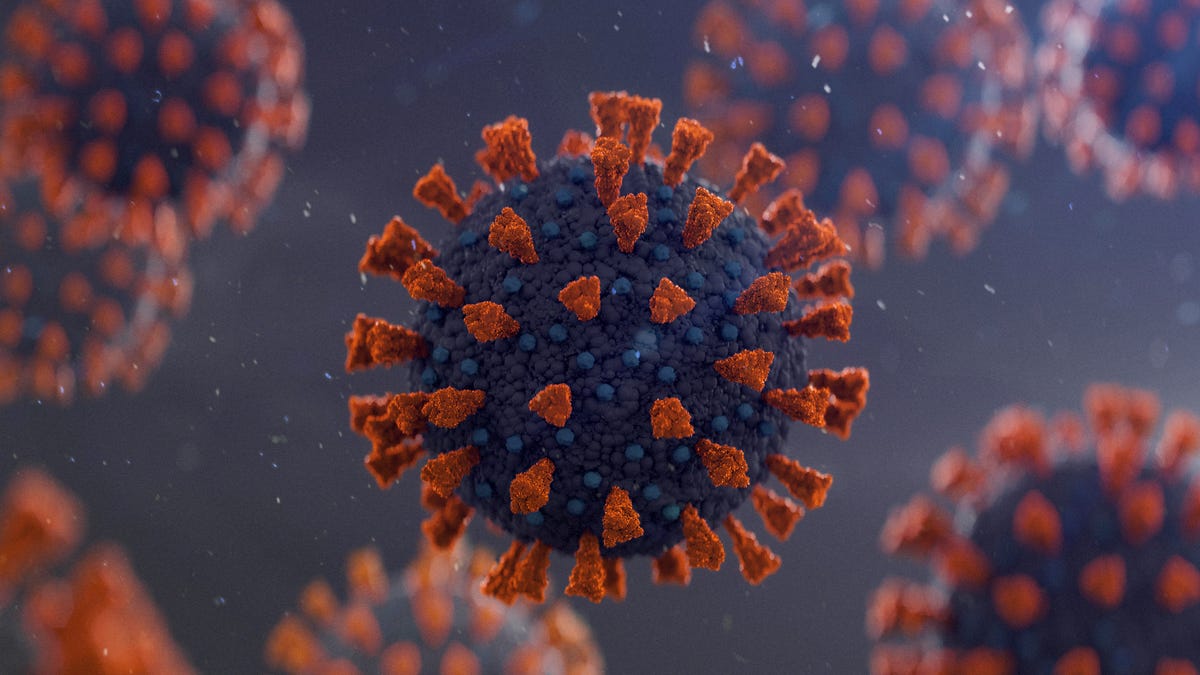COVID-19 herd immunity might not happen in the US, say experts
Some scientists argue there isn't a magic herd immunity number we need to reach to control COVID-19.

When will the US reach herd immunity for COVID-19? Actually, we might not.
In an article published by The New York Times, experts argue that many factors are chewing away at the dream of achieving herd immunity, including persistent vaccine hesitancy, individual city or community immunity and the spread of COVID-19 variants. As daily COVID-19 vaccination rates slow and variants continue to spread, some scientists and public health experts are shifting focus away from herd immunity and onto continued vaccination efforts to overcome the pandemic.
Herd immunity, or community immunity, occurs when a large portion of a community (the herd) becomes immune to a disease, making the spread of disease from person to person unlikely, according to the Mayo Clinic. People have immunity after being exposed to a virus, either through vaccination or from infection. Both methods train a person's immune system to recognize and respond to an invading virus, and reduce transmission of that virus from person to person.
The magical number needed to attain herd immunity doesn't seem to exist, with experts citing percentages anywhere from 60% to 80% of the population. Anthony Fauci, director of the National Institute of Allergy and Infectious Diseases, has shifted his opinion on how many vaccinated people are needed to reach herd immunity. Now, as he explained to the Times, the focus shouldn't be on herd immunity in the "classic sense," but rather on continuing to vaccinate to keep COVID-19 numbers down.
Some experts are saying herd immunity is unlikely with a virus as contagious and widespread as COVID-19. Especially when you take into account crowding, human behavior and other factors, virologist David M. Morens told the Times.
"The herd immunity for a wealthy neighborhood might be X, then you go into a crowded neighborhood one block away and it's 10X," Morens told the newspaper.
See also: 16 important do's and don'ts for getting your COVID-19 vaccine
Although the concept of herd immunity may be becoming a pipe dream, and we may never reach a specific number of vaccinated people that gives the whole country immunity, that doesn't make the role of vaccination any less important. In fact, it's the only way we can manage the virus and ensure the most vulnerable populations do not get sick.
In the Times article, Marc Lipstitch, epidemiologist at the Harvard T.H. Chan School of Public Health, stressed the importance of reducing disease.
"The vast majority of the mortality and of the stress on the health care system comes from people with a few particular conditions, and especially people who are over 60," Lipsitch told The Times. "If we can protect those people against severe illness and death, then we will have turned Covid from a society disrupter to a regular infectious disease."
About 44% of US adults have received at least one COVID-19 vaccine dose, and about 31% are fully vaccinated, according to the CDC. All adults age 18 and older are eligible for a COVID-19 vaccine in the US. Although those numbers are hopeful, fewer people are getting vaccines than they did in the weeks before, suggesting that a local effort might be needed to persuade those who are on the fence about getting vaccinated.
In an interview with CNN, physician and professor Leana Wen said she agreed that we need to strive for herd immunity, but that she wasn't sure we would ever get it. Wen said vaccination efforts should be moved away from mass vaccination sites to smaller community sites to get vaccines to hard-to-reach populations.
Although experts, as well as President Joe Biden, are uncertain about the role of herd immunity, the goal to return to normalcy and, most importantly, reduce harm, remains the top priority in the fight against COVID-19.
"The virus is unlikely to go away," Rustom Antia, an evolutionary biologist at Emory University in Atlanta told the Times. "But we want to do all we can to check that it's likely to become a mild infection."

